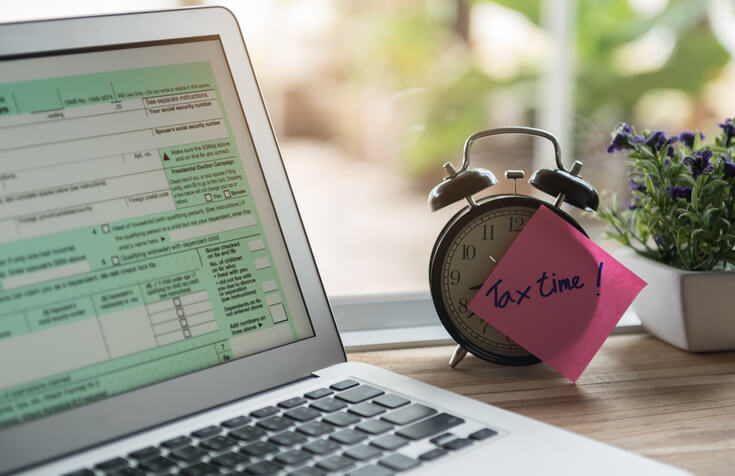It can be a challenge to figure out your business taxes during any year, and given how unusual and tough 2020 was, we wanted to bring a few key small business tax tips to the forefront – several that are unique or more relevant during this tax season.
The pandemic has changed many aspects in life and in business. In particular, the CARES Act is a new legislation that could impact your taxes.
As you navigate your 2020 taxes, please use our key tips which also include important questions to consider about your business, goals and opportunities.
7 Small Business Tax Tips:
1. Deduct Interest From Borrowed Funds
If your business received financing by a loan or a business line of credit in 2020 you may be able to deduct interest payments on the funds borrowed.
The interest on a line of credit used to purchase equipment or fund payroll would be considered an “ordinary and necessary” business expense by the IRS. Make sure to not miss out on this.
2. Understand how the Paycheck Protection Program loan (PPP) will be Taxed
The PPP loan was created to assist small businesses as they navigate the impact of COVID-19. The purpose is to help cover payroll, rent/mortgage, and utility payments.
The PPP is a forgivable loan, as long as the certain conditions are met. Given the evolving information about the PPP loan it is highly recommended to research applicable rules and get guidance from a tax counselor. Click here for more guidance.
3. Look at Estimated Tax Payment for Possible Shortfall
2020 was a tough year for small businesses and many experienced cash flow issues and underpaid their estimated taxes.
Doing this can result in a penalty from the IRS and state government. Review your estimated tax payments for the year and check if there is a shortfall based on your anticipated year-end income.
4. Talk to Your Tax Advisor About the COVID Related Payroll Tax Deferment
The CARES Act allowed employers to defer payment of their share of 2020 payroll taxes. Deferred amounts must be paid by December 31, 2021, by which time 50% is due with the remaining 50% due by December 31, 2022.
The deferment was intended to provide liquidity for the remainder of 2020, but it also means that business owners can’t deduct their share of payroll taxes until they are paid.
It’s important to bring this up to your tax advisor as they may advise you to pay back your share of the payroll tax early so that you can claim the deduction for 2020.
5. Take Advantage of the Home Office Deduction if You Have Moved Operations to At-Home
The U.S. Small Business Administration (SBA), stated that before COVID about 50% of all firms were home-based. However, the IRS reports that the deduction is often overlooked by small business owners.
The home office deduction can come into play if you rent or own your home and use part of the property for business. You may be able to deduct business expenses related to your office space like rent, mortgage interest, property taxes, and utilities.
Make sure you are aware of the details of this deduction if you are one of the millions of business owners, freelancers, and independent contractors now working from home to stay safe and maintain social distancing.
6. Max Out Your Retirement
If you have an IRA or simplified employee pension (SEP) if possible, contribute to retirement funds or even add extra for your employees, which they would greatly appreciate.
The maximum contribution for an IRA in 2020 is $6,000 (plus an extra $1,000 if you are aged 50+) and $57,000 for a SEP plan (or 25% of your net earnings from self-employment).
You can make retirement contributions all the way up to April 2021 for many types of plans. Use the first quarter of 2021 to figure out your tax liability and shift more savings for the future.
7. Transportation Costs
One of the most overlooked small business tax benefits is transportation. Some of your biggest savings this year may not be the same as last year.
A mileage calculation may offer you more savings than a straight expense, you just have to estimate both of them.
If there were any canceled flights or car rentals that were purchased and refunded in 2020, be sure to add those back in as credits. If there were non-refundable losses, factor that in, too.
Also, remember that company cars and associated expenses count as deductions; see the IRS fringe benefits guidelines for how to treat personal miles used with a company vehicle.
NOTICE: This Information does not constitute legal, tax, financial or advice of a professional nature; it is provided for informational purposes only. You should consult your own professional advisors for any such advice. Any action you take based upon the Information is strictly at your risk and based upon your decision and we will not be liable for any losses or damages in connection with the Information.
STAY CONNECTED
Get the latest small business news and tips:



